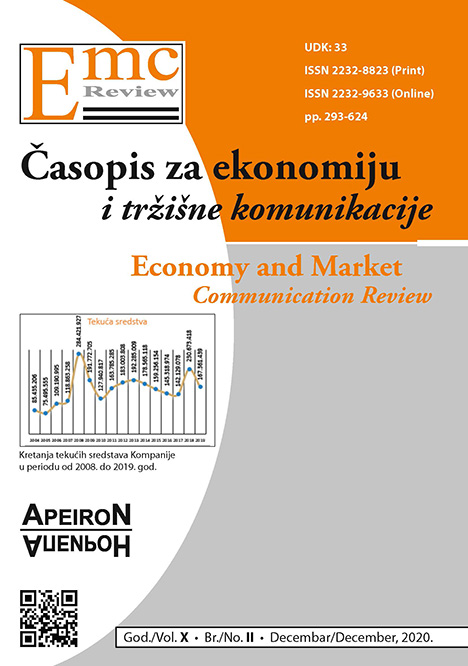MODELING CRITERIA FOR SERVICES OF GENERAL INTEREST ORGANIZED BY TRAIN OPERATORS
DOI:
https://doi.org/10.7251/EMC2002542HAbstract
The definition and conclusion of the Public service obligation contract for rail (PSO contract) is between the national passenger railway carrier and the competent transport Ministry. The PSO contract represents an optimal mode of transport arrangement as a unified and unique traffic model with traffic criteria such as timetable, type of vehicle, quality requirements, user behaviour and expected revenues. To conclude a PSO contract, it is necessary to provide a methodology for modelling criteria for transport services of general interest respectively for making the role of a train operator sustainable and satisfying for public needs. AHP method was used for criteria valuation among twenty experts. Encouraging rail passengers transport based on users’ requirements leads to a different way of conducting business operations for the carrier. Research results based on experts’ opinions shows that most important sub-criteria for providing quality transport service is a state of infrastructure while evaluating timetable parameters. To keep the service on a satisfactory level, experts consider that diesel train costs and maintenance costs needs to be reduced. Experts also concluded that quality requirements sub-criteria such as availability and safety should be provided before and during the journey. Offering numerous and useful amenities at stations such as bars, kiosks and ticket offices will help to retain service users. Last and the most important expert’s opinion conclusion is that public passenger transport is depending on state funds and budget. The current practice of awarding PSO contracts is based solely on the scoring of tenders received through published tenders and therefore requires a model that will include all relevant parameters and their corresponding sub-criteria.
